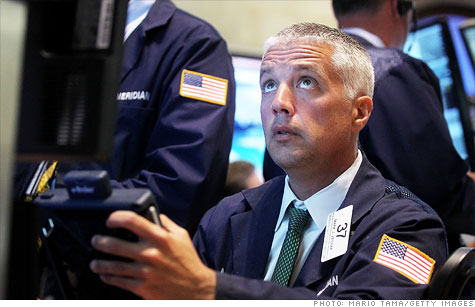HONG KONG (Reuters) - The U.S. dollar may weaken and Treasury yields rise when Asian markets reopen on Monday, though any selling in response to ratings agency S&P's downgrade of the United States is likely to be tempered by the escalating crisis in the euro zone.
The S&P cut in the U.S. long-term credit rating by a notch to AA-plus is an unprecedented blow and results from concerns about the nation's budget deficits and climbing debt burden. It called the outlook "negative," signalling another downgrade is possible in the next 12 to 18 months.
"The initial reaction will be a high degree of uncertainty and thus volatility since investors will not know where to turn for safety," said Mark Mobius, executive chairman of Templeton Emerging Markets group, in an email to Reuters.
"During the sub-prime crisis safety was in U.S. Dollars and U.S. Treasuries. Now that anchor to the global community is deteriorating," added Mobius, whose unit oversees $50 billion in emerging market assets.
Fears of a slide back into recession for the world's biggest economy prompted a global sell-off that wiped $2.5 trillion off company values over the past week, with consumer discretionary shares of firms dependent on external demand likely to be singled out for more punishment.
The fall in global share prices, as measured by the MSCI All-country World Index, was the biggest weekly decline since early October 2008, according to Thomson Reuters Datastream.
Market players warned the U.S. downgrade was likely to exacerbate a sharp contraction in risk appetite, and could see investors shift to the low-yielding Japanese yen and the Swiss Franc, despite market interventions from their respective authorities to weaken the currencies last week.
But they said fears that Europe's debt crisis could engulf core economies Spain and Italy, where sovereign debt yields have soared to 14-year highs, meant investors may still seek a safe-haven in the dollar, despite the U.S. woes.
Goldman Sachs strategists said there was a one-in-three probability of a U.S. recession due to the worsening European crisis, extension of payroll tax cuts and elevated levels of joblessness, despite a slight dip in the U.S. unemployment rate in July.
"Simply put, market sentiment appears acutely vulnerable given the build-up of concern on a sharper U.S. slowdown and speculation on the appropriate policy response and lingering fears stemming from the sovereign debt crisis in Europe," Citigroup strategists said in a note.
The benchmark MSCI all-country world stocks index fell to its lowest level since September 2010 last week, and has slumped more than 12 percent since late July.
The benchmark MSCI index of Asia Pacific ex-Japan stocks fell 8.7 percent last week.
Meanwhile, global leaders scrambled to discuss the U.S. sovereign rating downgrade and Europe's debt woes, and may issue a statement after a conference call, a Japanese government source said on Sunday.
Yields on benchmark U.S. ten-year treasury notes rebounded smartly to 2.56 percent on Friday but were not far away from a record low of near two percent hit during the throes of the global financial crisis.







